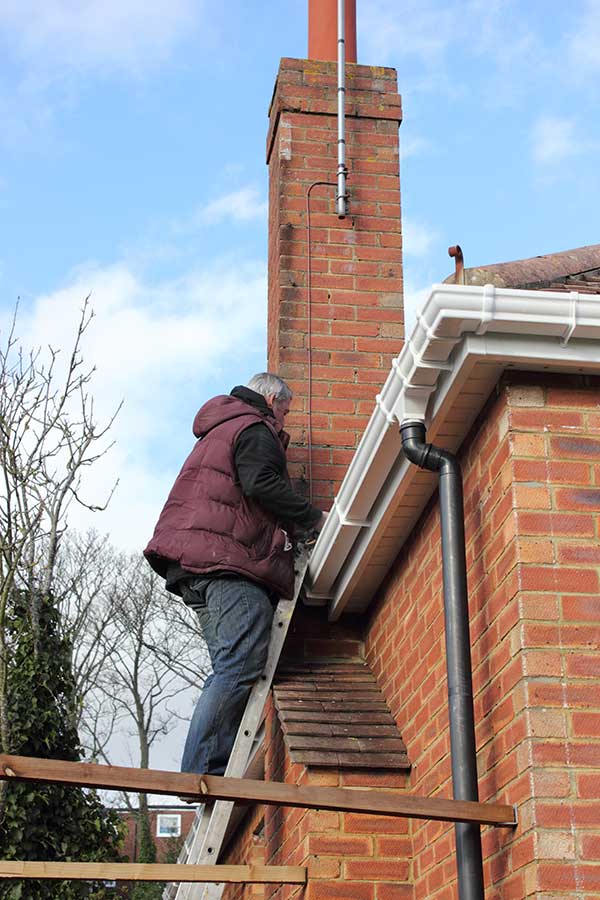Trust Our Professionals for Chimney Leak Detection & Repair
Oh, the dread of hearing a “drip, drip, drip” coming from your chimney… Not only is this a nuisance to the ears, but it’s likely causing damage to your masonry and venting system. It’s amazing how much water can penetrate a chimney through one or two (what look like minor) cracks.
This is a scenario we see way too often here at Chimney Masters. Even homeowners that get regular inspections and cleanings can encounter a weather event that triggers significant damage – like a lightning strike that opens up a crack somewhere in the system. Because of this, you may think leaks are all but inevitable, but with the right prevention, this doesn’t have to be the case.
We do a great job at minimizing chimney leaks, repairing your chimney, and taking preventive action. Call today to get started.
What Is the Number One Cause of Chimney Damage?
Water is the most destructive force that can damage a chimney system. Water infiltrates your mortar joints and can cause cracks and corrosion in the masonry. It also affects the structural integrity of bricks, which can lead to further structural damage, as well as an increased risk of fire hazards and carbon monoxide exposure.
What’s worse is that, here in the Montgomery County area, we experience freezing rain and snow in the colder months – which freezes then melts multiple times a season. This invites a cycle called freeze/thaw, and it’s a process that can be really damaging to your masonry. Here are some facts about this cycle:
- Every time the water freezes inside the bricks, it expands and then retracts when it thaws.
- Over time, this further weakens the brick and can cause it to break down from the inside.
- As this happens multiple times a year, you’re looking at a lot of wear and tear.
- Using a system that’s damaged like this can invite numerous threats into your home.
All that said, it’s not just masonry systems that face damage from water. If you have a factory-built fireplace then your appliance is mostly made of metal. When water sits on metal for a while then those pieces start to rust. Given enough time, the metal will completely rust out and you’ll have some major issues that can only be solved by replacing the unit.

Once you stop and really think about the cost of letting water into your system, it makes sense to make sure you are doing everything you can to keep it out.
What Is the Best Way to Keep Water Out of My Chimney?
The most important thing you can do to keep water issues at bay is to get a chimney inspection done once every year. This way, we can identify where the water is coming from and the best course of action to resolve it. Once we know where it’s coming from, then it may be flashing that’s the most important thing or the crown or a full coverage cap… or maybe even rebuilding some of the structure will be in order.
That said, we won’t know until we take a look. Call us in to do that inspection and see how everything looks. After that, we can give you some actionable things to do in the next few years to protect the system as much as possible from the ravages of water damage.
Don’t Wait to Call Us In
Hopefully, you can see why it’s important to stay on top of any potential signs that your home has a chimney leak – things like water in your firebox or water stains in the ceiling or walls, even if they are across the room it could be the chimney. Or maybe you note some odd mildew-y odors or “wet dog”-type smells coming from the fireplace. All are things we have heard and experienced that have indicated water in the system.
If any of these issues arise, please call us as soon as possible, so that we can send a certified technician out to your home. Once there, the sweep can diagnose and detect if the chimney is leaking and determine what needs to be done to take care of the leak and get the system running as it should.
Call Chimney Masters today at 301-972-9158 or schedule an appointment right here on the website. We’d love to speak with you soon.
Relining your chimney is one of several possible chimney repairs that could be necessary to keep your system in good health.
